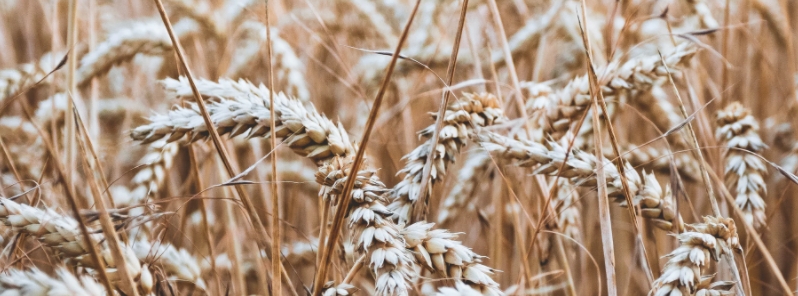Bread prices to rise after extreme weather causes UK’s worst wheat harvest in 40 years

The UK's worst wheat harvest in 40 years is set to cause a price hike in flour and bread, the agricultural industry warned. Due to last autumn's heavy rains, only 40 percent of the usual amount of wheat crop was planted, while this year's wild weather also affected crops that are being harvested.
"We're looking at a 30 percent reduction in our good fields, in some of our poor fields it's even more," said Matt Culley, a farmer from Hampshire and chairperson of the National Farmers' Union (NFU).
The federation said only 40 percent of the usual amount of wheat crop was planted last October due to heavy downpours.
Severe weather continued to hit the agricultural sector this year as droughts earlier in the season affected the quality of crops being harvested now. The dry spells were followed by lots of August rains, resulting in poor quality harvests.
Cirencester farmer Ed Horton said his crops usually yield around 2 500 tonnes of wheat, but this year, his crops are down to 580 tonnes. "It has a huge knock-on effect on our finances," he told Sky News.
"We've produced a third of what we usually would, therefore there's a large hole in our cash flow and we've had to replace wheat with other crops that we don't make as much money out of."
"For the food chain, there's a lack of domestically produced quality wheat so we may end up having to import wheat from other parts of the world."
UK Tory #Brexit disaster has started, #Scotland
We face worst wheat harvest in 30 years, & if when we leave EU with no-deal, the big rises in cost will be passed directly to the consumer.
Tory UK Govt fails #Scotland every daypic.twitter.com/ykAHJZwNda @STVNews @BBCScotlandNews
— Euan Anderssonn (@FreeThinker2030) August 25, 2020
Tetbury miller Joe Lister said it has been challenging to source the highest quality of wheat for their customers. "Luckily, as a small mill, it will be easier for us to source the amount of quality wheat we require from the UK crop."
Some farmers have already started charging 10 percent more for flour, and it is also feared that a no-deal Brexit may cause prices to further rise.
"In the event of a no-deal Brexit, millers could face a 79 pound-per-tonne tariff on wheat imports from the EU as the UK would be reverting to WTO rules."
"This creates a lot of uncertainty for the milling industry as to how to cover off the exposure," Lister added.
The UK Met Office told BBC News that the extremes of wet and dry conditions this year may soon become more common due to climate change.
Featured image credit: niklas_hamann/Unsplash

There may be a shortage of wheat in the UK but world wheat prices are historically low. Imports will be available at cheap prices. If not then it will be proof that our commodity prices are controlled by the cabal. As a retired grain farmer I wouldn’t rule this out as a possibility. Check out https://futures.tradingcharts.com/chart/MW/M for verification of current wheat prices which in no way encourage growing wheat!